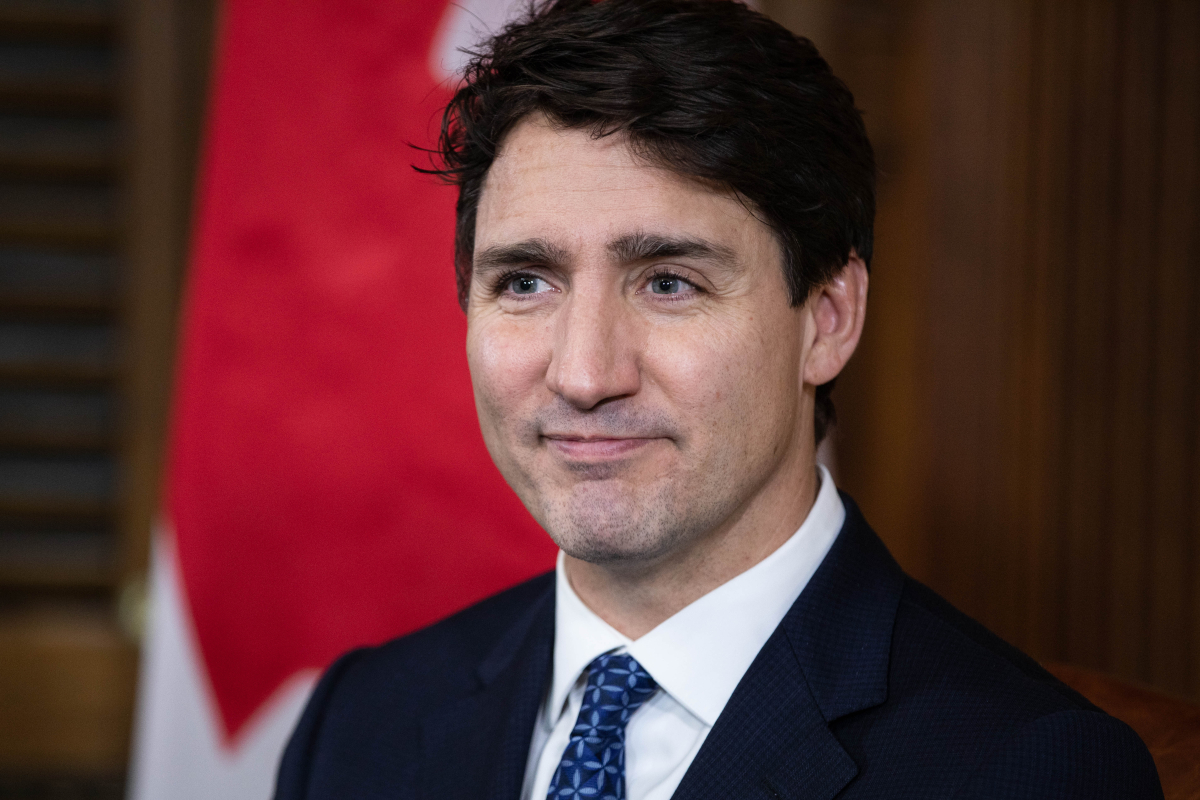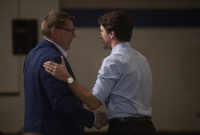Support strong Canadian climate journalism for 2025
Prime Minister Justin Trudeau threw cold water on any idea his government would give in to the demand for a single tax form in Quebec.
Quebec Premier François Legault wants Ottawa to agree to amend the duplicate systems to collect federal and provincial incomes taxes in his province to instead create a single tax form for residents, administered by the provincial government.
The issue has become a possible ballot-box question for Quebec voters in the fall federal election, with Conservative leader Andrew Scheer promising to make it a priority to develop such an agreement if his party wins.
"Conservatives favour simplifying life for taxpayers and for tax filing," Pat Kelly, the party's national revenue critic, said Tuesday.
The Conservatives introduced a motion Tuesday morning calling on the House of Commons to unanimously endorse the idea, which the Liberals immediately rejected.
Prime Minister Justin Trudeau said Ottawa has a responsibility to collect taxes everywhere in Canada.
"Listen, we are always ready to work to simplify the lives of Quebecers and all Canadians, but we are not aligned with the Quebec government on the idea of a single provincial form," he said in French before meeting with his cabinet on Parliament Hill.
Quebec is the only province in Canada where personal income taxes are collected separately by Ottawa and the provincial government. In every other province all personal income taxes are submitted to Ottawa and then the provincial portion sent back to the appropriate provincial government.
Legault's proposal is slightly different in that he wants the province to collect all taxes and then send Ottawa its portion. Quebec claims the savings from unifying the process in that province would be as much as $600 million.
The federal Liberals argue that implementing the idea would put in peril the jobs of hundreds, if not thousands, of Quebec-based Canada Revenue Agency workers.
"We recognize that it is jobs that Mr. Legault's and Mr. Scheer's statements put in jeopardy," Trudeau said.
Ottawa announced Monday the construction of a new building for the tax centre in Shawinigan, Que., where 1,500 people are employed.
Transport Minister Marc Garneau also said unifying the tax returns is more complicated than people might think.
"First is the issue of tax evasion and secondly, the fact that we have different definitions of income," said Garneau, a Quebec MP. "So with nine provinces, the income is the same, but in Quebec it's different."
In Quebec, the issue crosses party lines: Last May, the National Assembly passed a unanimous motion in favour of a single tax form.
However, it is a different story federally. On Tuesday, Trudeau went as far as to accuse the Conservatives of pandering for votes in Quebec, noting the only question the Conservatives asked about it was in French.
"I will always stand up to defend the interests of Quebecers and indeed all Canadians," he said. "But I will also stand up for what's good for Canadians and stand against pandering to the provinces."
Later, a Quebec Conservative MP, Luc Berthold, commented that Revenue Minister Diane Lebouthillier was only speaking about the issue in French. Lebouthillier, who is taking classes to improve her English, then criticized the Conservative, noting that she was entitled to speak in the official language of her choice. Berthold later apologized for his remarks.




Comments